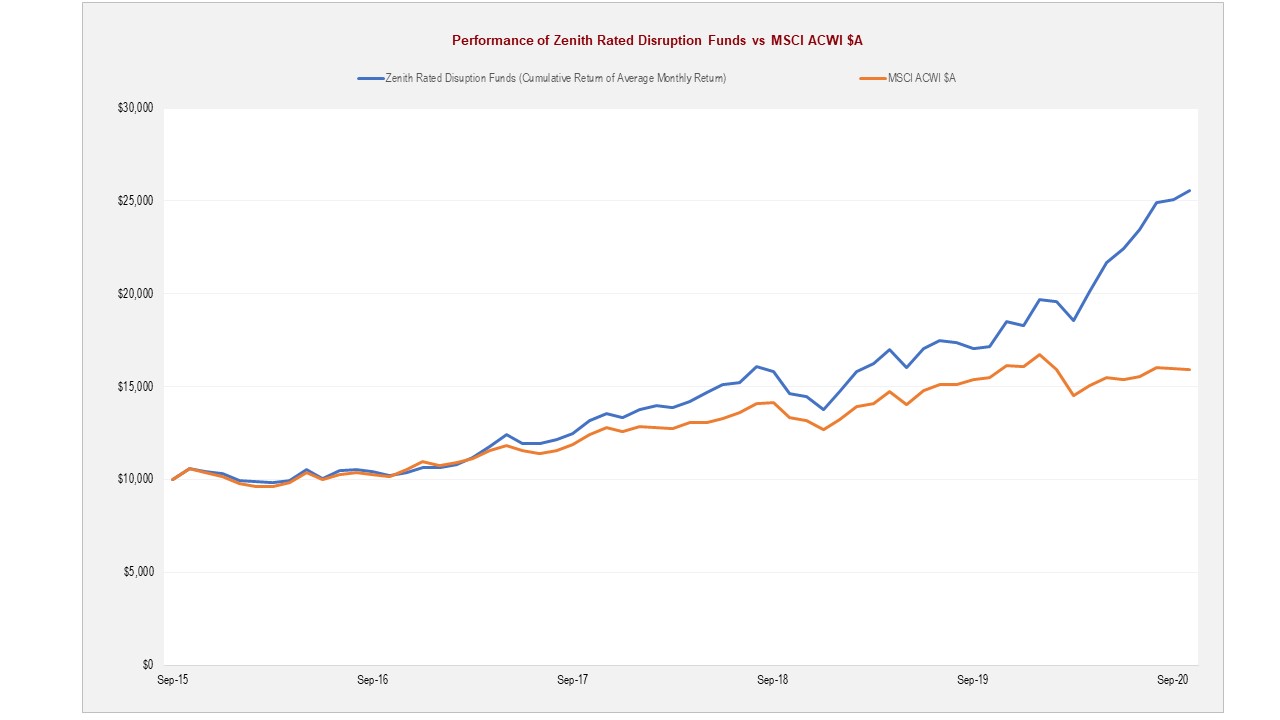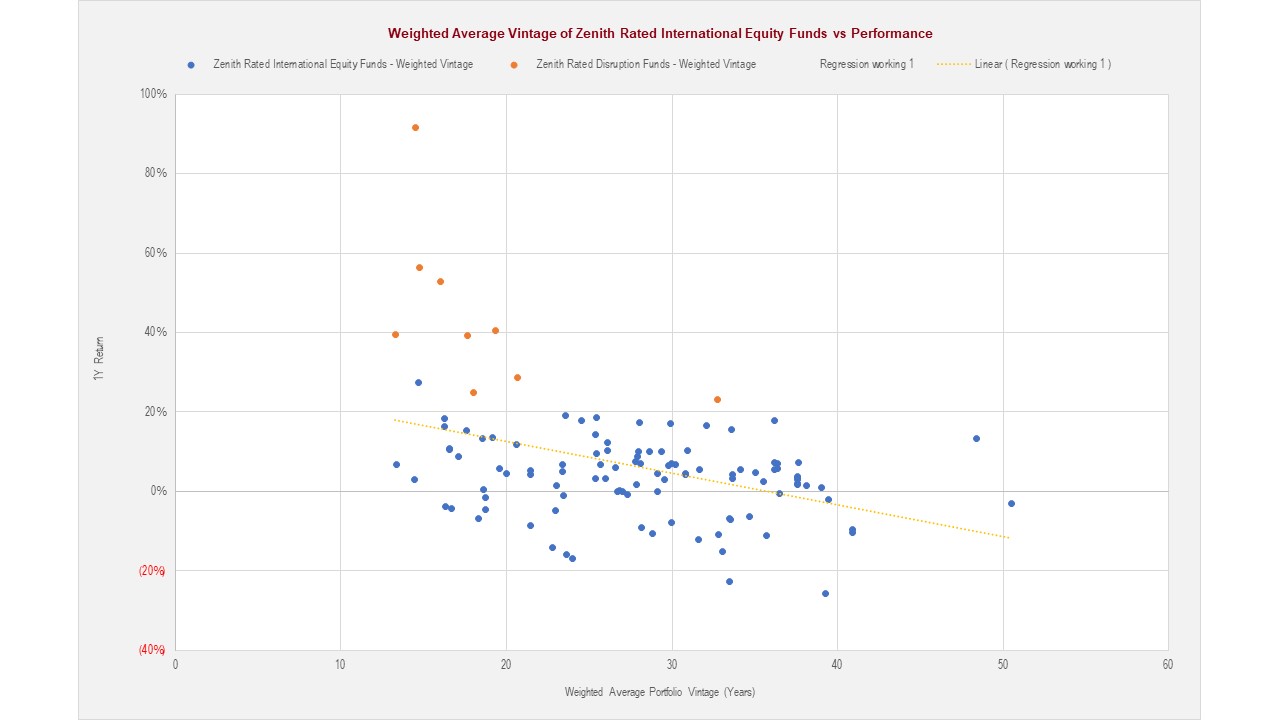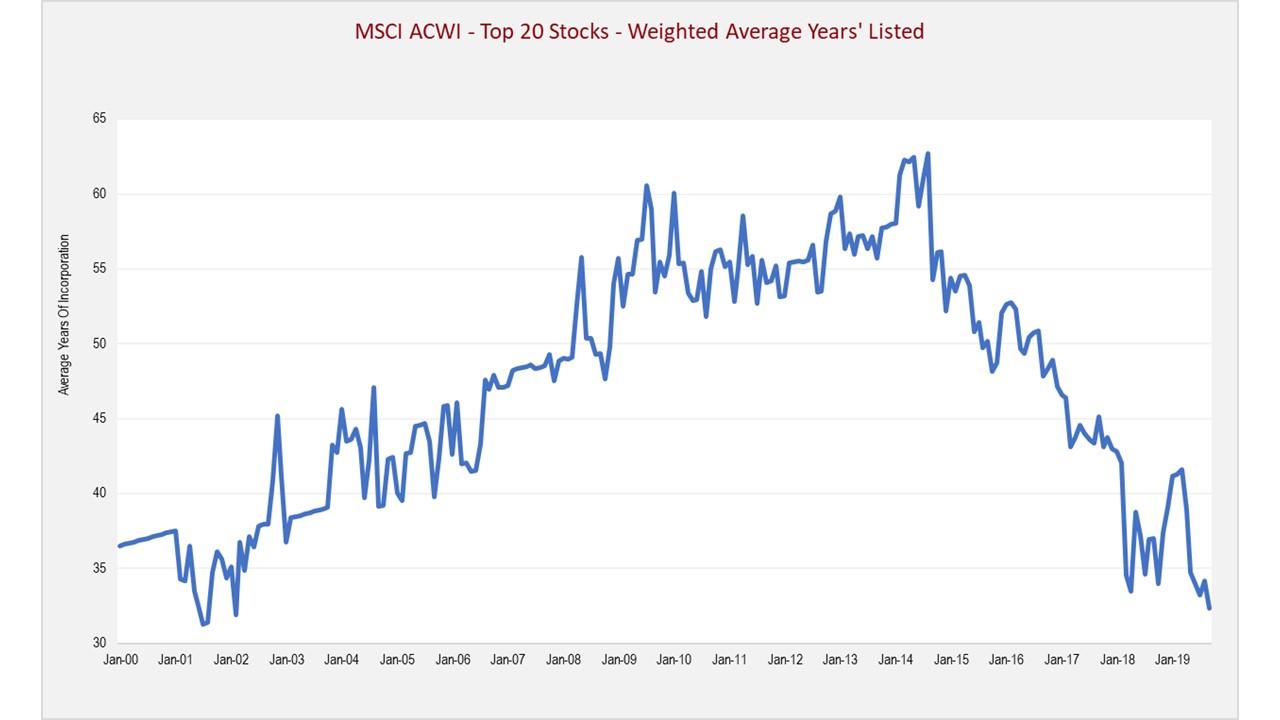It’s been more than 40 years since the pop hit ‘Video Killed The Radio Star’ was released and topped the charts. The new wave song referenced how radio was disrupted by the newer, more attractive technological innovation of video. And today, it’s become somewhat of an anthem for the disruptive investment thematic, which has been gaining strong momentum in recent times.
How has the disruption/innovation thematic performed?
Such is the interest in disruptive technologies, several index providers have now developed passive strategies that capture the thematic. In September 2019, the second largest index provider, MSCI, launched the MSCI All Country World Disruptive Technology Index (the Disruptive Index).
Whilst the MSCI Disruptive Index has a limited track record, MSCI’s back-test, which begins in November 2016, shows that it’s outperformed the broader global equities index, the MSCI All Country World Index (MSCI ACWI), by approximately 10% p.a. to 31 October 2020.
Why are disruption/innovation stocks riskier?
Have you ever heard of Rdio, Sidecar and Kato? The chances are you haven’t.
Have you heard of Spotify, Uber and Slack? The chances are you have.
Rdio, Sidecar and Kato are failed competitors to Spotify, Uber and Slack, respectively. For every successful disruptor, there are numerous failed competitors.
How can an investor access the disruption/innovation thematic?
We’ve seen the number of disruption and innovation-focused funds coming to market and being added to our approved product list increase over time, with growth continuing in 2020.
To date, funds that are exposed to the disruption/innovation thematic have delivered impressive performance for investors. The chart below shows the performance of the specialised group of disruptive/innovation funds rated by Zenith over the five years to 30 September 2020.

Source: Zenith
We think it’s worth noting that outside of these specialised funds, mainstream funds also offer exposure to the disruption/innovation thematic. Given our expectation that disruptive companies are younger in age relative to the age of the broader equity market, we’ve plotted the weighted average portfolio publicly listed age (or maturity[1]) of all the international equity funds on our approved product list against the returns of the past year, shown below.

Source: Fund Managers, Bloomberg, Refinitiv
While noting that one year is a relatively short time frame, we observe a clear relationship between the weighted average publicly listed age of each fund and its corresponding performance. That is, over the last 12 months, funds exposed to the disruption thematic, through younger companies, performed better. More specifically, our analysis suggests that, for every year younger the funds were, there was a 0.8% pickup in absolute performance.
Have we seen this before?
To help understand the current investment opportunity set, we’ve assessed the evolution of global equity market indices in terms of company maturity. Whilst not a perfect measure, this can be used as a proxy for how important ‘disruptors’ have become as a component of broader equity markets.
The following chart details the weighted average years of incorporation of the top 20 stocks within the MSCI ACWI.

Source: Bloomberg
In recent years, there’s been a steady fall in the weighted average years of incorporation from above 60 years to below 40 years. This is a level not seen since 2001 at the height of the Dot-Com Boom, another period significantly influenced by the disruption/innovation thematic.
Tread with caution and diversify
Investing in disruption/innovation can be highly rewarding, particularly when aided by strong economic tailwinds. However, as we’ve highlighted, there are significant risks involved in investing in this thematic, sometimes resulting in the permanent impairment of capital.
As the wheel of disruption/innovation inevitably turns, there will be investment opportunities to harvest, which now appears to be occurring at a more rapid pace than in the past. Such is the speed of innovation.
Given the risks involved, we believe successful disruption/innovation investing requires highly skilled and experienced investment managers. Furthermore, we recommend investors seeking an exposure to this thematic maintain appropriate levels of portfolio diversification.
If there were a remake of the disruption anthem in 2020, perhaps it would be called ‘Netflix killed the video store’.
[1] How long a company has been available via publicly-listed equity markets.







